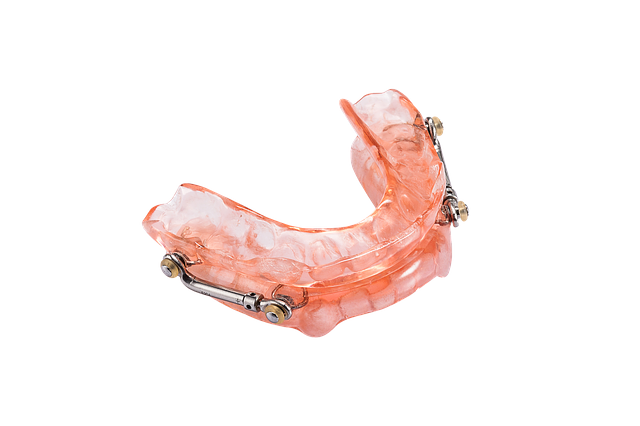Some people assume their lack of sleep for extended periods of time is a normal occurrence. However, this simply is not the case. Sleep apnea is more common than people think, so it’s important to get the word out.
Drop your bad habits to relieve your sleep apnea. Alcohol and cigarettes are two of the primary culprits. Alcohol depresses your nervous system and makes it harder to breathe, particularly when you are asleep. Cigarettes inject carcinogens into your respiratory system. Drop as many bad habits as you can as early as possible.
If you’re a smoker or a drinker (or both) who’s also dealing with sleep apnea, you may find that giving up your vices will solve your sleep disorder. Both of these cause muscles in your airway to relax, which can increase snoring and worsen sleep apnea. Dropping bad habits can help you live your life comfortably again.
Many people find that using a mouth guard while sleeping helps their sleep apnea. They make these mouth guards specifically for people that suffer from sleep apnea. This is a good alternative to using the CPAP machine. It keeps your air passageways wide open and clear by stabilizing your throat and holding it in the proper position.
If you are obese, start a weight loss program. Obesity has clearly been linked with sleep apnea in multiple studies. Consequently, it is therefore possible that losing just twenty-five pounds could result in a dramatic improvement of your sleep apnea symptoms if you are currently suffering from obesity.
Children can also suffer from sleep apnea. If your kid is acting out at school and cranky all the time, he might have sleep apnea. The symptoms can be confused with those of ADHD, so it is important to speak with your doctor to see if sleep apnea is a possibility.
Sleep Apnea Symptoms
Try something other than sleeping pills. In the same way that alcohol does, sleeping pills over-relax throat muscles. Sleeping pills also worsen many other effects dangerous to sleep apnea sufferers. See if your doctor knows of any sleeping medication that doesn’t cause respiratory depression.
To relive sleep apnea symptoms, play a wind instrument such as the flute or clarinet. Regular playing of the didgeridoo has been found by German scientists to strengthen the muscles of the upper airway. These muscles are responsible for the strength of your airway passage and its ability to dilate. This means that if you practice regularly, you will notice a reduction in sleep apnea symptoms and snoring.
A diagnosis of sleep apnea usually involves your personal and family medical histories, as well as a comprehensive physical examination. In addition, a sleep study may be required. Some doctors may send you to a doctor that specializes in sleep disorders. This is a specialist that concentrates on treating people who are having trouble sleeping.
Avoid drinking alcohol very often. Alcohol relaxes your muscles in a way that harms your breathing. While this might often be a desirable side effect of drinking, it can also cause sleep apnea. Your throat muscles become relaxed and cause your airways to become blocked. Reduce the frequency of your alcohol if you do continue to use it, and never drink close to bedtime.
You need a regular sleep schedule if you suffer from sleep apnea. Apnea disrupts your sleep patterns already. A routine sleep pattern will discourage the condition from getting worse. The adjustment that is most important is your sleep schedule.
Sleep apnea can be a serious disorder. If you think you may have it, it is important to make an appointment with your doctor to discuss it. A doctor can refer you to a sleep lab if the doctor believes you have sleep apnea, and you can then get on the road to recovery if you have it.
If you are using a CPAP and experience an issue with your mouth opening during sleep, a chin strap can help. The chin strap holds your chin so that you cannot sleep with your mouth open; it is a tiny piece of fabric. Your CPAP machine cannot function properly if your mouth hangs open. Using a chin strap may help.
If you can, sleep on one of your sides. Many folks afflicted with sleep apnea rest on their backs. Sleeping on your back can cause the tissues in your mouth and throat to block your airway. It is best to sleep on one of your sides or your stomach. Support yourself with pillows so that you won’t end up on your back at night.
Always carry ID on you if you’re a sleep apnea sufferer who uses a CPAP machine. You don’t need people questioning you and your device all the time, so it makes it easier when you bring your medical ID. This ID needs to specify you suffer from sleep apnea and have a CPAP that needs to be set on a certain pressure level.
Sleep Apnea
Quit smoking if you suffer from sleep apnea. Smoking causes the upper air passages to swell up, which causes sleep apnea to be more debilitating. Quitting can be handled through a cessation program or even nicotine replacement programs. The first month is often the hardest for most smokers. Once you are past the first few weeks, the nicotine craving begin to lessen significantly.
Avoid sleeping pills if you’ve been diagnosed with sleep apnea. You could seriously damage your air passage ways if you take them while you have sleep apnea. If you have sleep apnea it can be life threatening to take sleeping pills.
Use tongue and throat exercises as a way to combat sleep apnea. Place your tongue on your mouth’s roof and keep it there for at least three minutes. That will make your tongue and throat stronger and cut down the likelihood of those muscles relaxing and blocking the airway while you’re asleep.
Remember to bring the CPAP machine with you if you should happen to require a stay at the hospital. If your stay is planned or an emergency, you will need your CPAP device either way. You’re already comfortable with the mask you’re using, and your machine provides exactly the pressure setting you need. This will facilitate your CPAP therapy during your hospital stay.
Strengthening your throat muscles can be very effective in reducing sleep apnea symptoms as well. When you sleep, your airway relaxes and collapses and you cannot get enough air through. As your muscles strengthen, their possibility of collapsing and blocking your airways is lowered.
Choose only one, flatter pillow to sleep on each night instead of fluffy pillows. An over-sized pillow, or a pile of multiple pillows, can alter your sleep position with negative impacts on your ability to breathe freely. Not only is this bad for your neck in general, it also restricts your airway. This means that one pillow is most appropriate to help alleviate your sleeping concerns.
Sleeping in certain positions can also impact your sleep apnea. That is why it is important to sleep in the best position. If you must sleep on your back, elevate your head and the top half of your body slightly. Or, if you can, raise the top of your bed by at least four inches.
Use tongue and throat exercises as a way to combat sleep apnea. The process is to simply press the tongue against the roof of the mouth and maintain this for at least three minutes. Like other exercises for the body, muscles in the tongue and throat will be strengthened and therefore remain tighter while you sleep.
People that snore or have sleep apnea can play a musical instrument to help. A study shows this can greatly reduce the symptoms of sleep apnea. Learning this skill will assist you in controlling your breathing patterns.
You can reduce sleep apnea with exercises to strengthen throat muscles. When your breathing is obstructed by soft tissues collapsing in the anterior of your throat while you sleep, the result is sleep apnea. As the muscles become stronger, they will be less likely to collapse and block the airways.
There are many simple remedies available to anyone who is dealing with sleep apnea. Schedule a nightly bedtime and stick with it. Keep your bedroom comfortable and calm for the most satisfying sleep. With poor sleeping conditions you run the risk of having recurring sleeping issues.
How you sleep can affect your condition. This is why it’s essential to sleep in a good position. Lift your body up by using a foam wedge at the top of the bed. You can also lift up your bed by several inches at the head end.
People suffering from sleep apnea are well advised not to sleep on their backs. If you sleep on your back, you are sleeping in a position that can block your airways. Sleeping on your back is the worst possible position for people who suffer from sleep apnea.
If you are going to be on a plane a long time, then get in touch with the airline company to inform them that you need your CPAP machine for sleeping. The airline may seat you in a convenient place to make using your machine easier. You’ll need a power adapter on any foreign flights you take.
IF you have sleep apnea you can do exercises with your throat that may help. You can strengthen the muscles of your air passages, letting them be more likely not to collapse. One example is to hold your tongue against the top of your mouth for three minutes. This exercise can be done 1-2 times per day, every day.
Be proactive in finding the right sleep apnea treatment. If you do not go to a doctor and find a treatment, your symptoms will probably worsen over the years. Avoid waiting for your condition to deteriorate. If you wonder whether you have sleep apnea, talk to a doctor right away.
Sleep apnea becomes an even bigger problem if you are chronically fatigued. Establishing a regular sleep schedule can ease sleep apnea’s symptoms. Schedule a certain time of night for sleep, and set an alarm to wake up at the same time every morning. This should stop sleep apnea from increasing to an even bigger problem.
IF you have sleep apnea you can do exercises with your throat that may help. This is because when you exercise your throat it become stronger, allowing them to let air through them easier. A great example is to press your tongue against the top of your mouth, holding it there for three minutes, and releasing it. Try this once every day.
You should learn to play a wind instrument. It doesn’t matter which instrument that you choose, any of them will make a positive change in your muscles. Learning a wind instrument works the muscles of your throat and airway, allowing them to better control your breathing. After a while, playing these instruments will provide you with relief from apnea because of the muscle training.
Now that you have learned more about sleep apnea from what you have read here, you will be better armed to be on the lookout for it in your life. Never allow someone to tell you that frequently feeling tired is a normal part of life. Instead, talk to your doctor if you believe you are suffering from this condition, and let him or her know of the advice you’ve just read.
Stick to your treatment routine. It can be tempting to take a night off with some of the more demanding sleep apnea treatment regimens, but you’ll definitely notice a difference in your energy levels the next day. You will be able to function more effectively in your daily routine if you follow the treatment plan suggested by your doctor.
Before embarking on any journey, you must have the right knowledge. It’s important to know about best latex pillow
Hospital mattress protector,mattress and box spring covers in order to be successful. Apply the ideas found in this piece, and you will be entirely satisfied.













